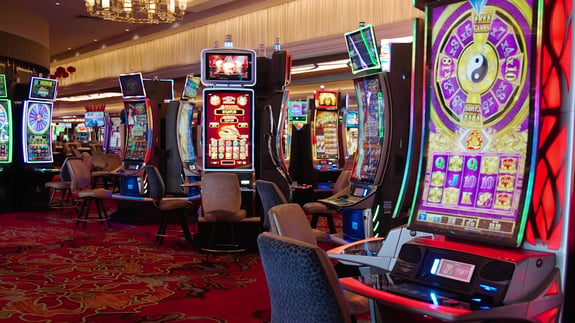
Casino games have long captivated a wide range of players, delivering not only the thrill of chance but also a unique experience crafted for different player types. Including analytical thinkers who excel at strategic thinking to more casual gamers seeking entertainment, casinos understand the subtleties of their audience and design games that cater to these varied interests.
In delving into the realm of gambling games, we find a rich tapestry of choices that interest all types of players. Poker tables with high stakes attract those who are competitive, while colorful slot machines draw in those seeking quick rewards. Whether it’s the allure of winning big or simply savoring the community feeling, casinos create their game offerings to ensure that everyone finds a spot where they feel comfortable and engaged. Comprehending how these games are tailored to different kinds of players can enhance not only our enjoyment of them but also our method for choosing which games to play.
Comprehending Player Groups
In the diverse world of casino entertainment, gamers can be grouped into specific categories based on their motivations and preferences. These participant types range from the relaxed and social gamers, who enjoy the enjoyment value and social connections that gambling provides, to the more strategic and methodical players, who seek to maximize their odds and profits. Comprehending these various player types is essential for casinos to adapt their offerings and create engaging settings.
One frequent kind is the group-oriented player, who views casino games as a form of group interaction and fun rather than a high-stakes gambling activity. These players often enjoy games that encourage participation and friendship, such as blackjack. Their attention is on the experience rather than the result, so dynamic settings and mutual moments are what they cherish the most.
On the other end of the range, strategic players are inspired by competition and the quest of expertise. They tend to lean toward games that require decision-making and strategy, such as poker, where their competencies can affect the outcome. This kind often involves with the games on a deeper level, utilizing expertise and strategies to secure an edge. Grasping these drives allows casinos to design environments and game selections that address to each gamer’s distinct preferences.
Strategies for Game Design
Gambling games are created with diverse player types in mind, employing various strategies to attract and capture them. For recreational players, the focus is on ease and ease of understanding. Games like slots are frequently aesthetically pleasing with straightforward mechanics. This enables players to experience the gameplay without a steep learning curve, creating an welcoming atmosphere. The bright colors, catchy sounds, and themes create a playful environment where players can quickly get immersed and enjoying themselves.
For strategic players who enjoy a deeper level of involvement, games such as poker and blackjack offer complexity and strategic elements. These games incorporate strategy and tactical choices, appealing to players who excel on challenge and want to exercise their mental skills. 78WIN COM The design of these games often includes complex rules and mechanics that test players to refine their skills and create strategies over time, resulting in a fulfilling experience for those who enjoy mastering the game.
Moreover, social players are catered to through games that highlight engagement and community. This comprises live dealer games and multiplayer formats, which foster a sense of camaraderie among players. The design of these games typically includes communication tools and social elements, allowing players to interact and exchange insights. By creating an environment where interaction is encouraged, casinos can effectively engage community players, making the gaming adventure more enjoyable and memorable.
Enhancing Participant Engagement
Betting options have evolved considerably to create a more entertaining environment for participants. Software designers focus on immersive graphics, immersive soundscapes, and novel gameplay features that draw participants into the casino atmosphere. By utilizing technology, such as immersive technology and augmented reality, casinos ensure that players feel as if they are part of a exciting atmosphere, enhancing in addition to the enjoyment of the activities but also the entire satisfaction of being in a gambling venue.
Social interaction is another key aspect in boosting participant experience in casino games. Numerous games are designed to promote engagement among gamers, whether through multiplayer modes or chat features. 78WIN This interactive component is attractive to participants who like communicating with other participants while competing, promoting a feeling of community. In addition, social features can include ranking systems, competitions, and rewards for cooperative engagement, which capture determined players and encourage them to return for more.
In conclusion, customization plays a pivotal role in tailoring the experience for different player types. Gaming establishments and software designers examine gamer activities and tastes to present customized game suggestions and rewards. By comprehending the unique interests of gamers, casinos can present personalized promotions, incentives, and new game releases that satisfy each participant, thus boosting their overall satisfaction and commitment to the gaming venue.